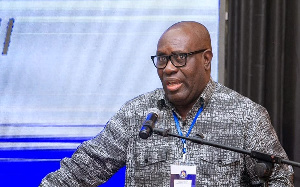- Home - News
- Polls
- Year In Review
- News Archive
- Crime & Punishment
- Politics
- Regional
- Editorial
- Health
- Ghanaians Abroad
- Tabloid
- Africa
- Religion
- Election 2020
- Coronavirus
- Photo Archives
- News Headlines
- Press Release
General News of Saturday, 4 February 2023
Source: ghanaiantimes.com.gh
We’ll resist any attempt by govt to renege on agreement to exempt us from DDEP - Labour Unions
Organised Labour has said it will “fiercely” resist any attempt by the government to default on an agreement to exempt pension funds from the Domestic Debt Exchange (DDE) programme.
It said the Memorandum of Understanding (MoU) signed with the government on December 2, last year was final and thus organised labour and all pension schemes under the body were not participating in any DDE Programme.
“Any contrary communication or position is alien to us and should be dismissed by all well-meaning Ghanaians. Any attempt to go contrary to this agreement will be fiercely resisted by Organised Labour,” the group said on Wednesday.
This was contained in a joint statement signed by the Secretary–General of the Trade Union Congress (TUC), Ghana, Dr Anthony Yaw Baah; Chairman of the Forum of Public Sector Associations and Unions, Dr Isaac Bampoe-Addo and the Deputy Secretary-General of Ghana Federation of Labour (GFL), Kenneth Koomson.
The group was reacting to a statement issued by the government to extend the deadline of the DDE programme for the third time, from Tuesday, January 31 to February 7, with new offers to encourage all bondholders to sign up.
The statement said that discussions were being finalised with Organised Labour and Pension Fund Trustees, on a separate arrangement in accordance with the December 22 MoU.
However, according to organised labour, the exemption should stay.
“We assure all workers of Ghana that, Organised Labour will continue to safeguard their interest at all times,” the statement said.
When the government announced the DDE on December 5, last year, pension funds were included, but organised labour agitated for exemption and announced an indefinite industrial strike to press home their demand.
Its argument was that the terms of the DDE were not favourable and would gravely affect them.
They called off the strike after they signed a deal with the government for exemption, following which the DDE programme was revised and extended for the second time.
Ghana in December last year reached a staff-level agreement with the IMF on economic policies and reforms to be supported by a new three-year arrangement under an Extended Credit Facility (ECF) of about US$3 billion.
The approval by IMF manage¬ment and the Executive Board in the period ahead is contingent on receiving financing assurances from Ghana’s partners and creditors.
Ghana is targeting to get 80 per cent participation in the DDE programme to continue processes to get the approval by March this year.
Entertainment










